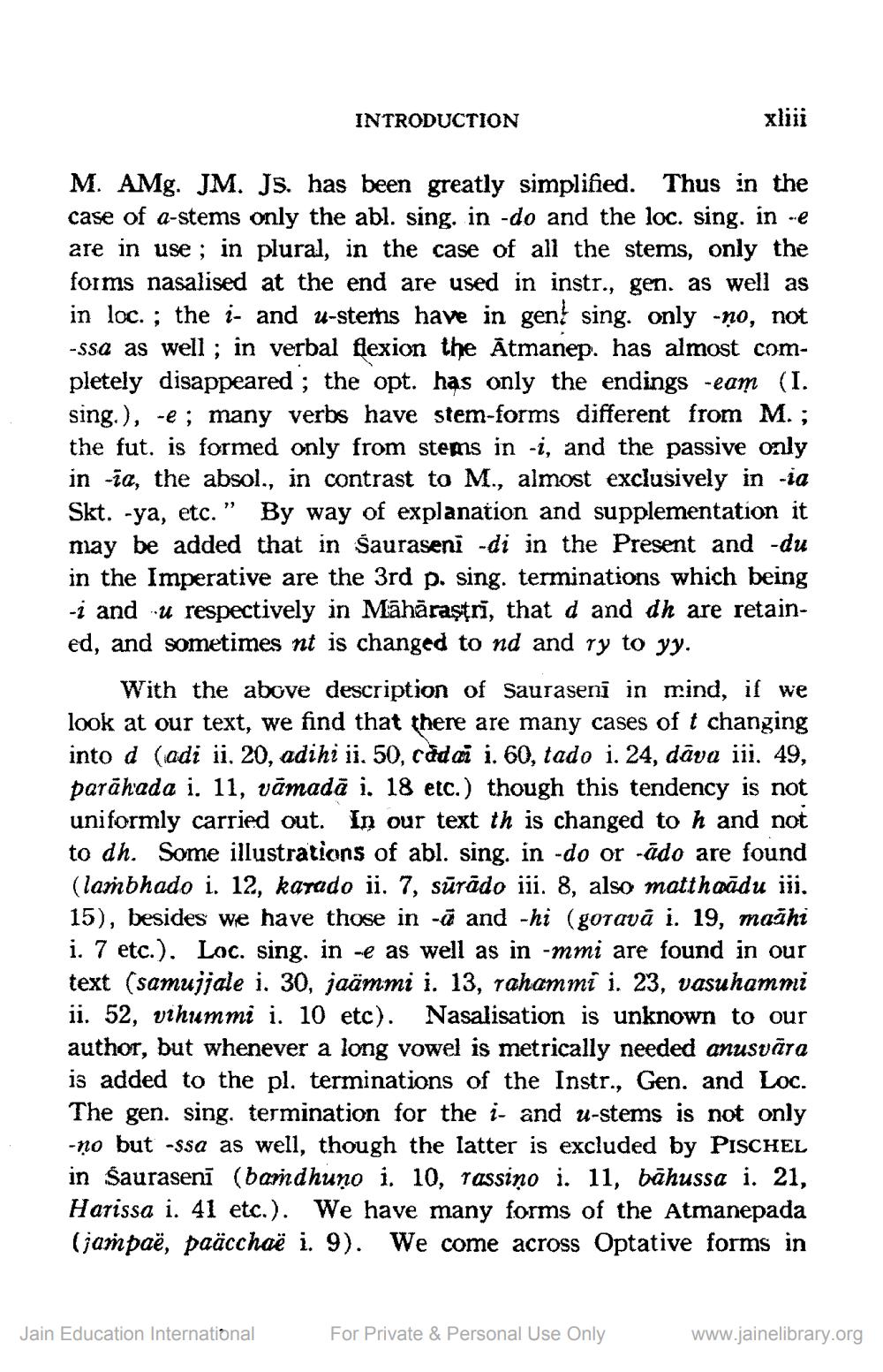________________
INTRODUCTION
xliii
M. AMg. JM. Js. has been greatly simplified. Thus in the case of a-stems only the abl. sing. in -do and the loc. sing. in -e are in use ; in plural, in the case of all the stems, only the forms nasalised at the end are used in instr., gen. as well as in loc. ; the i- and u-sters have in gen. sing. only -ņo, not -ssa as well ; in verbal flexion the Ātmanep, has almost completely disappeared ; the opt. has only the endings -eam (I. sing.), -e; many verbs have stem-forms different from M.; the fut. is formed only from stems in -i, and the passive only in -ia, the absol., in contrast to M., almost exclusively in -ia Skt. -ya, etc.” By way of explanation and supplementation it may be added that in šauraseni -di in the Present and -du in the Imperative are the 3rd p. sing. terminations which being -i and u respectively in Māhāraştri, that d and dh are retained, and sometimes nt is changed to nd and ry to yy.
With the above description of Sauraseni in mind, if we look at our text, we find that there are many cases of t changing into d (adi ii, 20, adihi ii. 50, cada i. 60, tado i. 24, dāva iii. 49, parāhada i. 11, vāmadā i. 18 etc.) though this tendency is not uniformly carried out. In our text th is changed to h and not to dh. Some illustrations of abl. sing. in -do or -ado are found (lambhado i. 12, karado ii. 7, sūrādo iii. 8, also matthæādu iii. 15), besides we have those in -ī and -hi (gotavā i. 19, maihi i. 7 etc.). Loc. sing. in -e as well as in -mmi are found in our text (samujjale i. 30, jaämmi i. 13, rahammi i. 23, vasuhammi ii. 52, vihummi i. 10 etc). Nasalisation is unknown to our author, but whenever a long vowel is metrically needed anusvāra is added to the pl. terminations of the Instr., Gen. and Loc. The gen. sing. termination for the i- and u-stems is not only - no but -ssa as well, though the latter is excluded by PISCHEL in Saurasenī (bamdhuno i. 10, Tassino i. 11, bāhussa i. 21, Harissa i. 41 etc.). We have many forms of the Atmanepada (jampaë, paäcchaë i. 9). We come across Optative forms in
Jain Education International
For Private & Personal Use Only
www.jainelibrary.org




